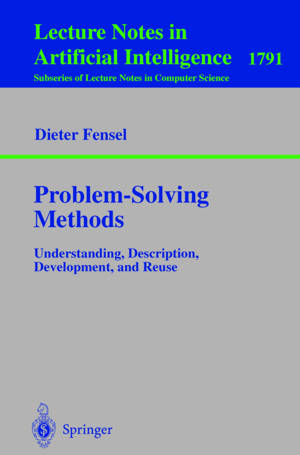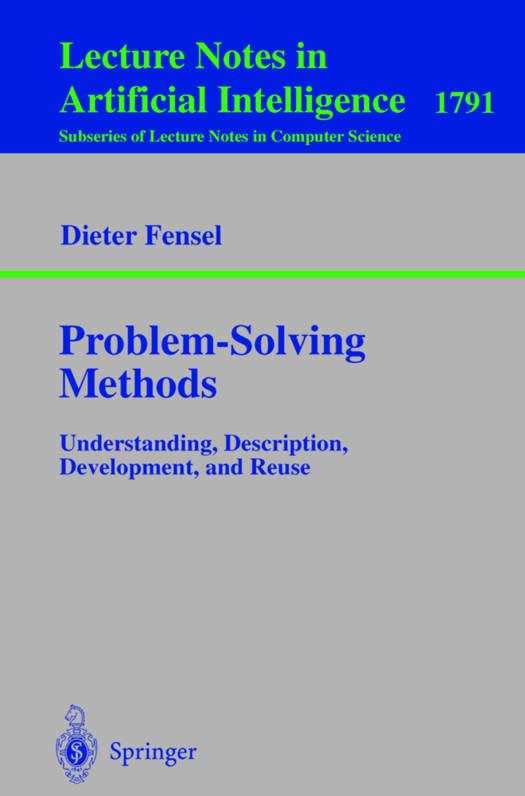
- Afhalen na 1 uur in een winkel met voorraad
- Gratis thuislevering in België vanaf € 30
- Ruim aanbod met 7 miljoen producten
- Afhalen na 1 uur in een winkel met voorraad
- Gratis thuislevering in België vanaf € 30
- Ruim aanbod met 7 miljoen producten
Zoeken
Problem-Solving Methods
Understanding, Description, Development, and Reuse
Dieter Fensel
Paperback | Engels | Lecture Notes in Computer Science | Lecture Notes in Artificial Intelligence | nr. 1791
€ 52,95
+ 105 punten
Omschrijving
Researchers in Artificial Intelligence have traditionally been classified into two categories: the "neaties" and the "scruffies". According to the scruffies, the neaties concentrate on building elegant formal frameworks, whose properties are beautifully expressed by means of definitions, lemmas, and theorems, but which are of little or no use when tackling real-world problems. The scruffies are described (by the neaties) as those researchers who build superficially impressive systems that may perform extremely well on one particular case study, but whose properties and underlying theories are hidden in their implementation, if they exist at all. As a life-long, non-card-carrying scruffy, I was naturally a bit suspicious when I first started collaborating with Dieter Fensel, whose work bears all the formal hallmarks of a true neaty. Even more alarming, his primary research goal was to provide sound, formal foundations to the area of knowledge-based systems, a traditional stronghold of the scruffies - one of whom had famously declared it "an art", thus attempting to place it outside the range of the neaties (and to a large extent succeeding in doing so).
Specificaties
Betrokkenen
- Auteur(s):
- Uitgeverij:
Inhoud
- Aantal bladzijden:
- 160
- Taal:
- Engels
- Reeks:
- Reeksnummer:
- nr. 1791
Eigenschappen
- Productcode (EAN):
- 9783540678168
- Verschijningsdatum:
- 27/09/2000
- Uitvoering:
- Paperback
- Formaat:
- Trade paperback (VS)
- Afmetingen:
- 156 mm x 234 mm
- Gewicht:
- 249 g

Alleen bij Standaard Boekhandel
+ 105 punten op je klantenkaart van Standaard Boekhandel
Beoordelingen
We publiceren alleen reviews die voldoen aan de voorwaarden voor reviews. Bekijk onze voorwaarden voor reviews.











